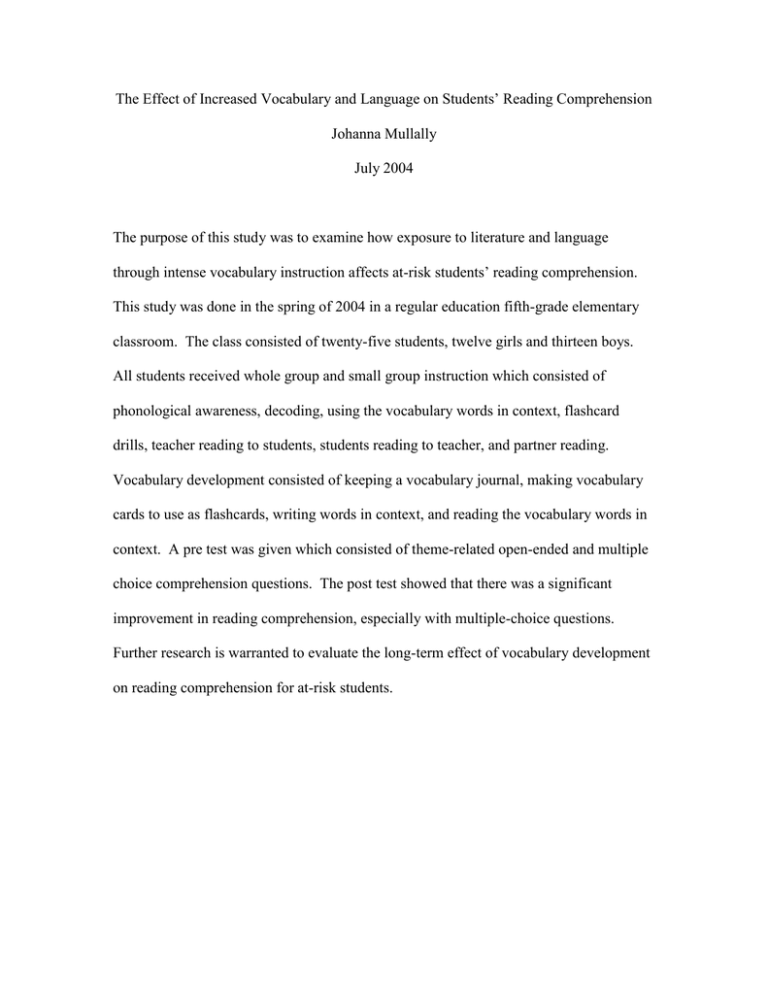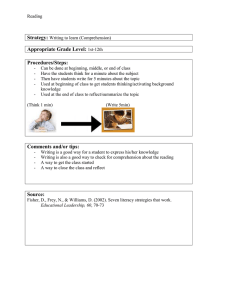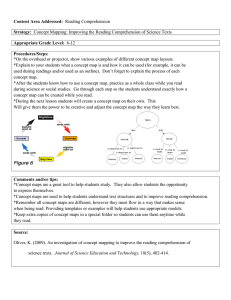The Effect of Increased Vocabulary and Language on Students’ Reading... Johanna Mullally July 2004
advertisement

The Effect of Increased Vocabulary and Language on Students’ Reading Comprehension Johanna Mullally July 2004 The purpose of this study was to examine how exposure to literature and language through intense vocabulary instruction affects at-risk students’ reading comprehension. This study was done in the spring of 2004 in a regular education fifth-grade elementary classroom. The class consisted of twenty-five students, twelve girls and thirteen boys. All students received whole group and small group instruction which consisted of phonological awareness, decoding, using the vocabulary words in context, flashcard drills, teacher reading to students, students reading to teacher, and partner reading. Vocabulary development consisted of keeping a vocabulary journal, making vocabulary cards to use as flashcards, writing words in context, and reading the vocabulary words in context. A pre test was given which consisted of theme-related open-ended and multiple choice comprehension questions. The post test showed that there was a significant improvement in reading comprehension, especially with multiple-choice questions. Further research is warranted to evaluate the long-term effect of vocabulary development on reading comprehension for at-risk students.


